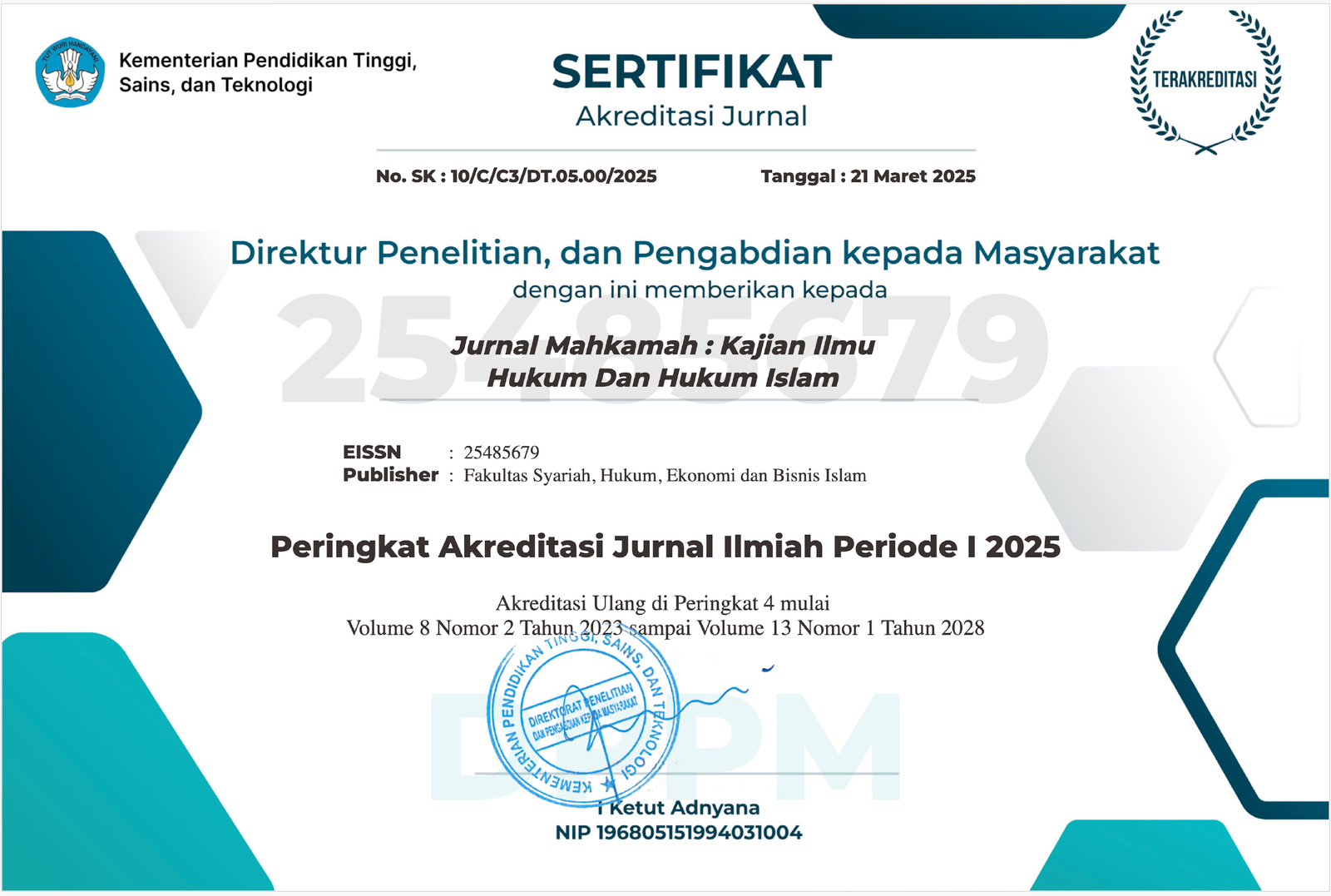Contextualization of the Law of Marrying Adultery on Married by Accident Phenomenon in the Hadith History of Imam Abu Dawud
DOI:
https://doi.org/10.25217/jm.v6i2.1750Keywords:
Abu Dawud, Married by Accident, AdulterersAbstract
This article contains the legal contextualization of marrying adulterers on the emergence of the phenomenon Married by Accident in Indonesia with the hadith in Sunan Abu Dawud number 2052. The discussion regarding the quality of the hadith in Sunan Abu Dawud number 2052 in its use as evidence (hujjah) and how is the correlation between the meaning of the hadith and the contextualization of the rules of marrying an adulterer in the phenomenon of married by accident is interesting to discuss seeing the position of hadith as a muttafaq source in addressing all of the problems in human life. The method used in this study is a fiqh-hadith approach using takhrij hadith. The results obtained show that the quality of the hadith prohibiting adulterous marriage on Sunan Abu Dawud number 2052 can be categorized as authentic hadith and can be used as evidence (hujjah) in the legal decision (istinbath) of marriying adulterers. Meanwhile, the meaning analysis of this hadith correlated with the Married by accident phenomenon can be known that the law of marrying an adulterer is permitted by consider the benefit in it.
Downloads
Published
How to Cite
Issue
Section
License
This work is licensed under a Creative Commons Attribution-ShareAlike 4.0 International License.
Authors retain copyright and grant the Jurnal Mahkamah : Kajian Ilmu Hukum Dan Hukum Islam right of first publication with the work simultaneously licensed under a Creative Commons Attribution License (CC BY-SA 4.0) that allows others to share (copy and redistribute the material in any medium or format) and adapt (remix, transform, and build upon the material) the work for any purpose, even commercially with an acknowledgment of the work's authorship and initial publication in Jurnal Mahkamah : Kajian Ilmu Hukum Dan Hukum Islam.
Authors are able to enter into separate, additional contractual arrangements for the non-exclusive distribution of the journal's published version of the work (e.g., post it to an institutional repository or publish it in a book), with an acknowledgment of its initial publication in Jurnal Mahkamah : Kajian Ilmu Hukum Dan Hukum Islam.
Authors are permitted and encouraged to post their work online (e.g., in institutional repositories or on their website) prior to and during the submission process, as it can lead to productive exchanges, as well as earlier and greater citation of published work (See The Effect of Open Access).









